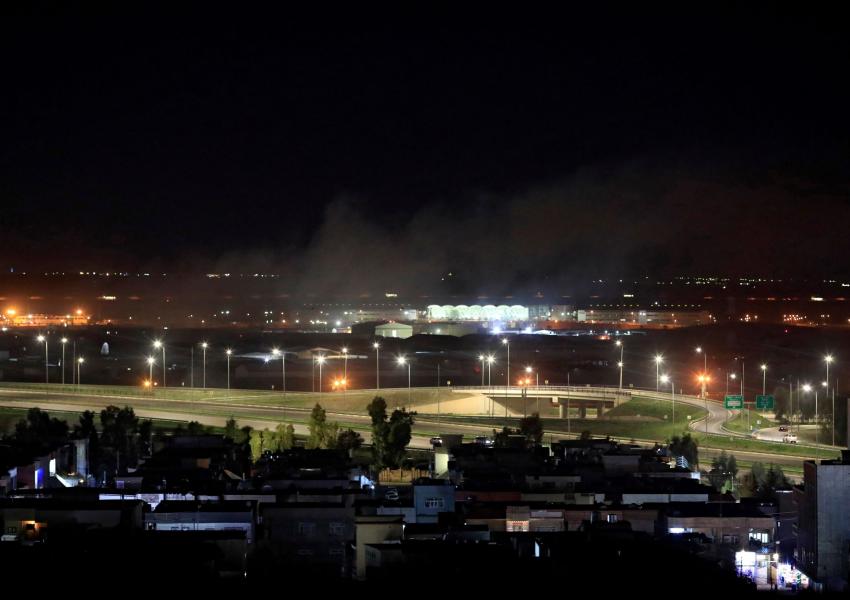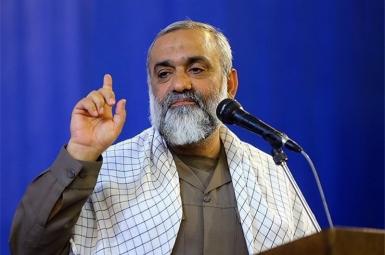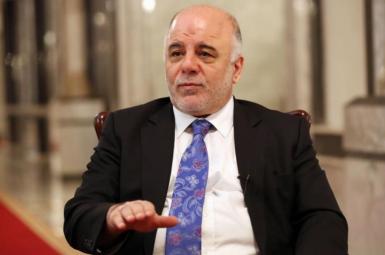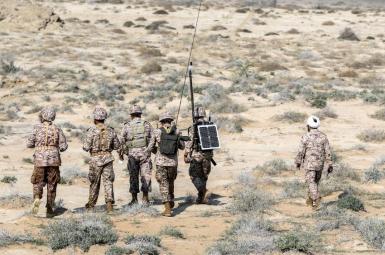
Rocket Attack In Iraq Seen As Challenge To US By Iran-Backed Groups
Rockets struck outside an airport near where US forces are based in northern Iraqi city of Erbil late Monday, killing one US-led coalition contractor and wounding at least eight other people, including American contractors.
The nationality of the dead contractor is not clear and is under investigation. Coalition spokesman U.S. Army Col. Wayne Marotto did not reveal the nationality of the contractor, but Reuters quoted two unnamed US officials as saying the individual was not an American.
According to a statement released by the Interior Ministry of Kurdistan Regional Government, several rockets were fired from south of Erbil at the Erbil International Airport on Monday night at 9:30.
It was reported that the three rockets hit outside Erbil airport, near US troops, making it the deadliest attack on the US-led coalition in Iraq in a year. Kurdish security source say that the Iran-backed Popular Mobilization Army (Hashd al-Shaabi) militias were behind the attack, which was launched from the south of Erbil.
U.S. Secretary of State Antony Blinken said late Monday the United States was "outraged" by the attack. In a statement, Blinken said he had reached out to Kurdistan Regional Government Prime Minister Masrour Barzani "to discuss the incident and to pledge our support for all efforts to investigate and hold accountable those responsible." But the statement did not say who might be responsible or issue a warning against further attacks.
US State Department spokesman Ned Price tweeted Blinken’s statement saying, “Iraqis should be able live safe and secure lives without fear of attacks or threats,” but he also sidestepped the question that the target of the attack was a US coalition base and this was not a random attack against civilians.
Iran-backed groups have claimed a series of rocket and roadside bomb attacks against coalition forces in the past year, including contractors working for the coalition and US installations including the embassy in Baghdad in recent months.
This action is widely seen as the Islamic Republic's test of the Biden administration as it considers how to approach Iran on the issue of its nuclear program and its aggressive regional activities. Iran has set February 21 as a deadline for the US to lift all Trump-era sanctions, or it has threatened to further accelerate it nuclear activities.
In January 2020, the leader of Hashd al-Shaabi, Abu Mahdi al-Muhandis was killed in the same US attack that killed the commander of Iran’s Qods (Quds) Force, Qasem Soleimani.
A little-known Shiite militant group calling itself the Guardians of Blood Brigade claimed responsibility for the attack. It claimed firing 24 rockets that avoided the airport's defenses, specifically naming an automatic machine gun known as a C-RAM that protects American installations in Iraq.
“The American occupation will not be safe from our strikes in any inch of the homeland, even in Kurdistan, where we promise we will carry out other qualitative operations,” the claim said, according to the SITE Intelligence Group.
Iran and its proxy forces in Iraq have been promising to drive US forces out of the country since the attack that killed Soleimani.








